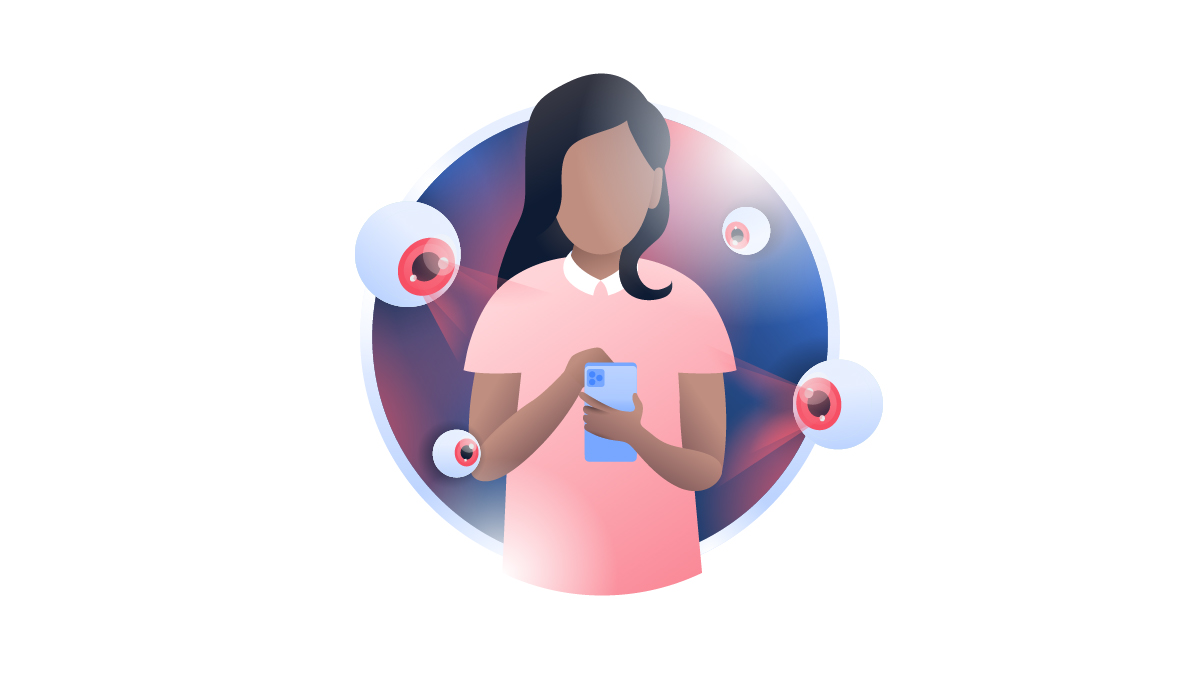Does a VPN use up your data?
Any service that requires you to stay tethered online for access will use up some of your data no matter how small or insignificant the service is. Complex software like a VPN might seem like the kind of app that could leech away your data at an alarming rate, but that’s not the case at all. In this article, we’ll explain how much data VPNs use and how you can minimize VPN data usage.
Does a VPN use data?
Yes, a VPN will use data. Data consumption will depend on the encryption protocol your VPN provider relies on, but usually the extra data used doesn’t exceed the 5–15% range. This extra usage is to account for the encryption process.
Does a VPN work on cellular data? Yes, a VPN works on cellular data. However, Using a VPN on your cell phone increases mobile data usage by 4-20% (depending on the protocol you use.) This means that you can’t use a VPN to get around your monthly mobile data cap, or to get unlimited roaming data. So, if you were wondering, “does a VPN use more data?” Then the answer is yes.
How much data does a VPN use?
How much data a VPN uses depends on your internet activity. As previously stated, VPN use will increase your overall data consumption by 5-15%, as per available resources online. The added data on top of your monthly usage will be negligible in most cases.
However, if you make a habit of watching HD quality movies every day with a VPN active, the usage drain will be more noticeable. If someone watches 4K-quality movies all week and burns through 30 gigabytes of data, that number could go as high as 34.5 gigabytes if a VPN was used throughout.
But again, VPN data usage depends on the encryption protocol a VPN service uses.
Which VPN protocols use more data than others?
When it comes to picking the right VPN, one of the most important factors you need to consider is what encryption protocol they use. The trick is to find the right balance between VPN data usage, speed, and protection.
A VPN service could advertise as being one of the fastest on the market. However, it could also rely on a weaker encryption protocol. That means that, while it can transmit your data faster, it’s more vulnerable to hackers.
Generally, the higher the bit number for the encryption protocol, the better. 128-bit PPTP, for example, burns through the least amount of data, compared with all other major VPN protocols. Unfortunately, it also has the lowest level of security, and experts strongly recommend that you don’t rely solely on this protection when browsing online.
256-bit encryption protocols offer far better protection, with only a moderate increase in data usage. Superior protection is a good price to pay for a slightly higher drain on data. NordVPN offers OpenVPN, a 256-bit protocol that sits at the perfect intersection between data use and protection.
Tips to minimize VPN data usage
While having a VPN enabled inevitably uses a little data, here are some tips to minimize VPN data usage.
- Use split tunneling. Split tunneling is a feature offered by some VPNs, including NordVPN, that lets you choose which apps route data through a VPN server and which can access the internet directly. This means that, if you have an app that uses more data than others, you can route it outside of your VPN, while still keeping the rest of your apps protected.
- Pause your VPN occasionally. While we recommend keeping your VPN on at all times, NordVPN includes an option to temporarily pause your VPN. You can choose how long the connection will be paused before it reconnects to the VPN server. To limit data use, you might want to do this before doing something online that uses a lot of data — though again, it is safer to keep your VPN on continually.
- Use unmetered internet. Unmetered internet connections are those for which you are not charged based on your use. Most broadband connections, for example, allow for unlimited data use, whereas many cellular data packages may only allow you to use a certain amount of data. Because a VPN encrypts your data, you can safely connect to public Wi-Fi hotspots and other networks that provide unmetered internet while using a VPN.
How else can a VPN help you?
While a VPN demands slightly more data usage, it can help in many other ways. For example, a VPN can improve your speeds by keeping your activity hidden from your internet service provider, or ISP.
If you’re doing something online that uses a lot of data — watching a live sporting event, for example — your ISP may decide to throttle your bandwidth. Bandwidth throttling is when an ISP limits your internet speed, to keep the rest of their network running smoothly. This can happen during peak usage times in your area, or when work is being carried out on network infrastructure.
If you’re using a VPN your ISP won’t be able to see what you’re doing, and can’t throttle your connection based on your browsing activity.
Premium VPNs also provide useful extra features. NordVPN, for example, offers an additional Threat Protection tool, a feature that blocks ads, scans downloads for malware, and boosts privacy.
When to use your VPN
You might be thinking: should I leave my VPN on all the time? If you want to keep your activity private, then the answer is yes.
However, if you’re finding that your VPN is eating into more data than usual, you might want to reconsider when to use your VPN.
Connecting your phone to public Wi-Fi? That’s a great time to use a VPN. Having a VPN on your mobile device is a vital protection tool. At home and reading news online? You probably won’t need to burn through your data for this one. Just be aware that, as soon as the VPN is off, the privacy protection it provides is gone. Pick and choose what you’re OK with your ISP seeing.
However you want to use your VPN, make sure you choose the right one. NordVPN is secured with some of the best encryption on the market and, with over 5,500 servers around the world, it offers the best coverage on the market. NordVPN is available on almost every device and operating system, so you can have protection wherever you go.

